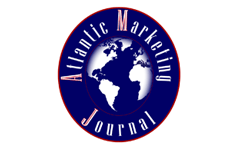Abstract
This study investigates the effects of celebrity familiarity, sensational copy, and forward referencing on curiosity and intention to click on a digital post using a 2 (familiar/unfamiliar celebrity) X 2 (high/low sensationalism) X 2 (high/low knowledge gap) experimental design. The results show that curiosity and click intention are significantly greater when the copy points to missing information and when familiarity is greater, supporting the information gap theory of curiosity and illustrating its application to the forward referencing technique used in clickbait. However, contrary to expectations, sensational copy produced lower levels of arousal, curiosity, and click intention, suggesting a backlash against exaggerated copy and supporting recent research linking sensationalism with perceptions of manipulative intent.
